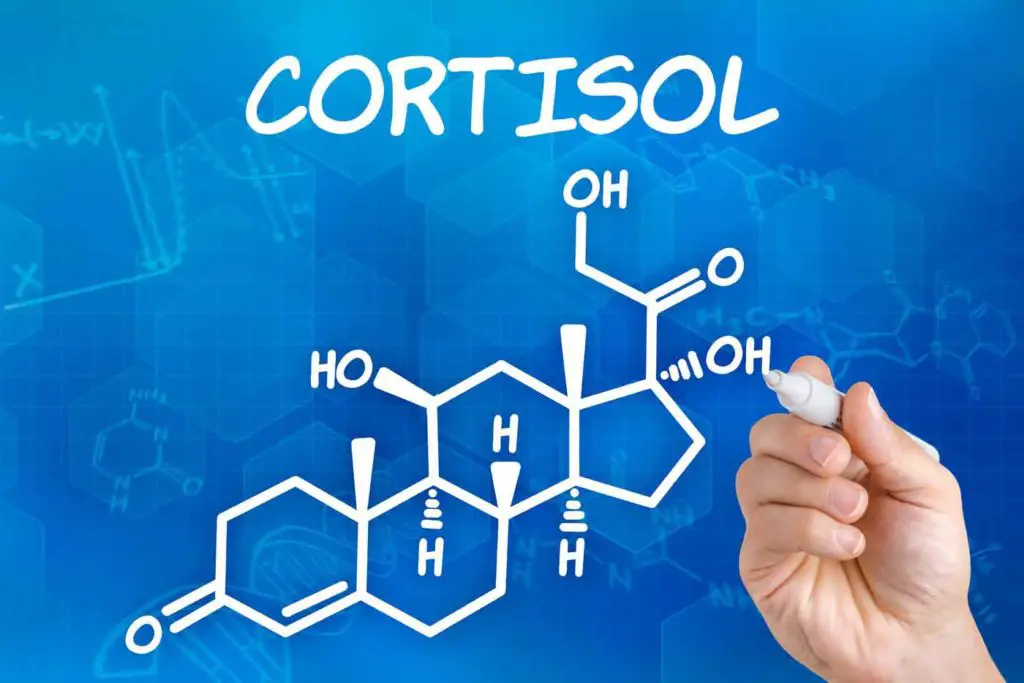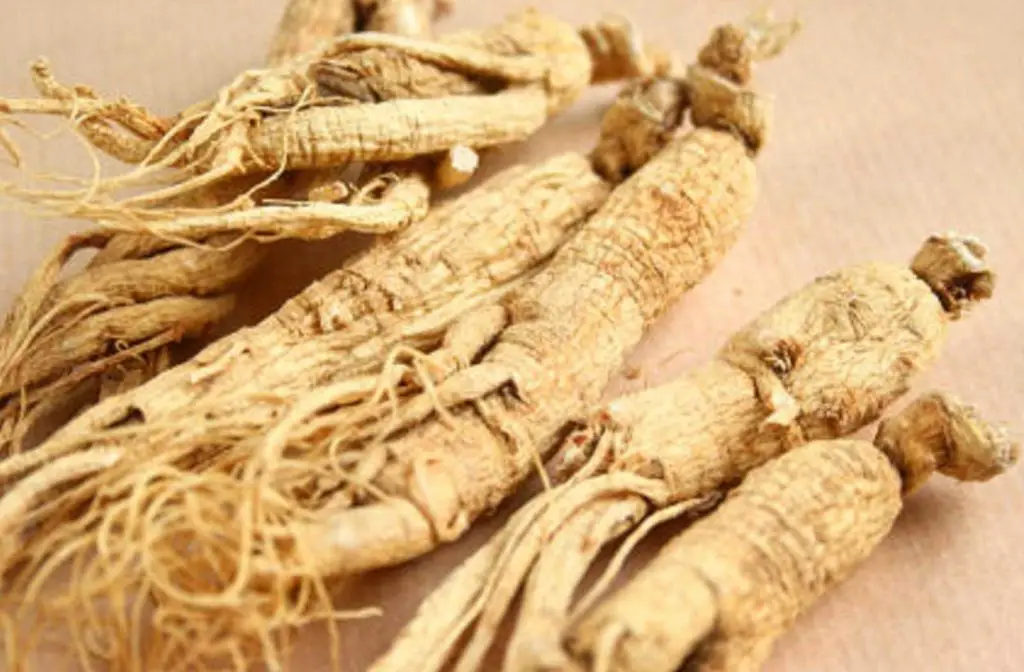What are Cortisol Blockers?
Cortisol is a product of the adrenal gland that is activated when the brain is overwhelmed or senses danger. The hormone is meant to calm the brain and allow it to approach problems one at a time in order to more effectively deal with them and move on. It is because of this hormone, as well as others such as adrenaline (which is also secreted during these instances) that the human species has managed to survive for tens of thousands of years.
While the hormone has played a vital role in human beings rising to the top of the food chain, an overabundance of cortisol does have some potentially devastating effects on individuals. Due to its role of keeping the body alert (in order to avoid potential danger), people with high levels of cortisol often have trouble sleeping and thus struggle with high levels of anxiety. In extreme cases, individuals with very high cortisol levels can also develop Cushing’s disease, which results in the development of large fat deposits on the body, as well as extremely high blood pressure and, occasionally, type 2 diabetes.
For those reasons, keeping your cortisol in check has been a primary concern for medical professionals dealing with these issues. Several methods have been developed for combating high levels of cortisol, however clinical methods are sometimes found unappealing. These natural cortisol blockers act to prevent the creation of cortisol in the adrenal gland, thus counteracting or preventing some of the negative symptoms associated with having high levels of the hormone.
List of Natural Supplements that Lower Cortisol
Schizandra
Schizandra is berry that is classified as an adaptogen. It has only recently started to become extensively studied so the benefits of it are just now being discovered. A Russian study showed that well trained athletes had a reduction in salivary cortisol following the administration of Schizandra and Bryonia. Another study in 1999 showed that athletes who took Schizandra prior to physical activity demonstrated lower cortisol levels post workout.
Read Also: 6 Benefits of Schizandraz a Superberry
Melatonin
A 2012 study showed that the improved quality of sleep, as a result of taking melatonin, can actually help decrease levels of cortisol in the human body. It is suggested that you keep your initial dosage low when you begin to use the hormone, however dosage tends to vary on a person to person basis roughly between 0.3mg to 10mg per day.
DHEA
Dehydroepiandrosterone is a naturally-occurring hormone produced by the adrenal gland, more commonly known as DHEA. The hormone is known to act as a countermeasure against the biological effects of cortisol in the body. It is possibly one of the strongest supplements out there to combat the effects of cortisol, and is taken in slightly larger doses (up to 25mg daily for women and up to 75mg daily for men).
Phosphatidylserine (PS)
This phospholipid is a naturally-occurring chemical in the body. A 1998 study found that the presence of amino acids can actually help regulate and control the effects of high levels of cortisol in the body, particularly during times of high stress. Since then, it has been used as a means of combating the effects of extreme stress by those wishing to avoid the more negative symptoms associated with high levels of cortisol.
Vitamin C
Possibly one of the most well-known and widely available supplements for treating high levels of cortisol in the body is Vitamin C, which can be found almost anywhere. A 2001 study on marathon runners, showed that the use of a high dosage vitamin C tablet following the completion of the run helped combat the growth of cortisol in the hours following the race. Vitamin C tablets have additional benefits for the body as well, as they also act as anti-inflammatories, helping the body to repair itself following minor or extensive damage (hence its experimentation on marathon runners). Since these vitamins are sold in a tablet form, it is recommended that you use the dosage listed on the bottles they come in.
L-Lysine
L-Lysine is classified as an aliphatic amino acid. It is crucial to the human body and must be consumed through diet or supplementation. L-Lysine’s ability to lower cortisol has been suggested in animal studies. The success in animal studies have led to two placebo controlled human studies. In the study with 108 healthy Japanese individuals a combination of L-Lysine and L-Arginine showed cortisol levels decrease in male subjects, but not in females.
Read Also: 13 Best Natural Adaptogens For Low Cortisol, Stress And Adrenal Fatigue
L-Glycine
L-Glycine is an amino acid, in fact its the only achiral proteinogenic amino acid. In a study on animals (chickens) L-Glycine showed an 80% reduction in Cortisol. In comparison to it’s peers this is unprecedented for cortisol reduction. Unfortunately the study was done on animals so the dosage conversions wont be exact and there is a definite need for more testing. In theory Glycine being a powerful cortisol reducer makes sense as it has shown in previous studies to limit muscle loss in older people, which might be due to elevated cortisol.
Theanine
L-Theanine is an amino acid that is not prevalent in the diet, in fact it is classified as a non dietary amino acid. In a study on rats serum cortisol was measured 3 weeks after the administration of Theanine. A low dosage of Theanine reversed the changes of anxiety and memory problems in the rats. The most effective dosage in the rats was 4mg/kg of body weight per day. If you do a rough conversion for humans its about 15-25mg of Theanine per day for humans. Another study used a significantly higher dosage (5g / days converted) and the cortisol reduction was the same. It appears that the added Theanine was not needed and the lower dosage is more than sufficient. In fact, all you would need to do to achieve the recommended level of Theanine is drink about a cup of Green Tea a day.
Niacinamide
Niacinamide also known as Nicotinamide it is part of the Vitamin B3 complex family of vitamins. It is found in food, supplements and sometimes medication. Niacinamide inhibits the enzyme 11b-HSD1 which is probably the mechanism by which it lowers cortisol. Side effects are minimal as long as the dosage isn’t too high. There is more evidence suggesting that Niacinamide lowers cortisol. Among the evidence is AstraZeneca a pharmaceutical company actually patented the use of Niacinamide for use in clinical trials for a variety of conditions that are related to high cortisol, among the conditions are Diabetes and Cushings.
Ashwagandha
One of the most well known and safe herbs on earth, Ashwagandha is qualified as an adaptogen. In a study of 64 subjects with chronic stress supplementing with 300mg/day of a standardized water extract, Ashwagandha showed a reduction of 27.9% of Serum Cortisol levels after 60 days. A separate study containing 160 participants taking 125mg/day of Ashwagandha (root and leaf water based extract) showed a 14.5% reduction in serum cortisol after 60 days. A study of 125 infertile men (ages 25-38) who were stressed or cigarette smokers showed ‘demonstrative reduction’ of cortisol levels. Their levels decreased 32%. Check out the top brands for Ashwagandha here.
Rhodiola Rosea
Rhodiola Rosea is a traditional Chinese medicine, it is the second most popular adaptogen behind Panax Ginseng. Rhodiola Rosea is a well studied herb. In a 2009 study Rhodiola Rosea has shown promise in regulating cortisol. Rhodiola Rosea kept serum cortisol at the same levels while the placebo group showed elevated cortisol in athletes after endurance training. This might mean Rhodiola Rosea could be used to lower cortisol.
Magnolia Bark
Magnolia is a traditional Chinese medicine which grows in mountains and valleys, primarily in China. In a study where 28 obese subjects completed the study, Magnolia Bark combined with Phellodendron extract led to lower cortisol levels in the evening. A dosage of 250 – 750mg / day might lead to lower cortisol levels at night.
Panax Ginseng
Asian or Panax Ginseng is the most well known and popular adaptogen today. It’s well studied and very safe. According to a 2009 study, Panax Ginseng has shown to increase and decrease cortisol. It appears to have different effects on different people. However; it does have many other benefits.
Read Also: Korean Red Ginseng (Panax Or Asian): The Root Of Immunity
Glutamine
Glutamine is the most common non vital amino acid. Anecdotally some people believe that Glutamine has a effect on lowering cortisol. There is a study that backs this claim but it isn’t a well controlled study. However; it does have an abundance of other benefits that would be well worth looking into.
Licorice Root
Licorice Root is the root of Glycyrrhiza glabra, it is from Asia, Europe and India. In a study from the Journal of Molecule and Cellular Endocrinology it was found to help regulate cortisol levels.
List of Foods that Lower Cortisol
Magnesium-Rich Foods
Magnesium is helpful in regulating the production of cortisol. Some good food sources that are rich in magnesium are spinach, beans, yogurt, almonds, dark chocolate and bananas.
Zinc-Rich Foods
We’ve known since at least 1990 that zinc has a natural effect of counteracting the effects of cortisol in the body. Foods that are rich in zinc are lamb, grass-fed beef, chickpeas, yogurt, spinach, mushrooms, and chicken. These foods will make up the majority of your protein dishes. Specifically for you meat eaters – stick to lamb, grass-fed beef, and chicken when eating your meals and you will be making a small contribution to balancing out your cortisol levels.
Microgreens
Microgreens are younger iterations of vegetables that contain a much stronger concentration of all the things that make vegetables good as a food group. Since they are highly concentrated, they actually contain as much as 5 times the vitamin content as their more mature counterparts.
Omega 3 Fatty Acids
A 2005 study showed that the presence of omega 3 fatty acids actively helped protect against “changes in the hippocampus in response to excess cortisol and cortiscosteroids.” The nice thing about this food group (as well as the citrus fruits) is that it can be eaten easily as a snack throughout the course of the day, whereas many of the others are probably more for meals than anything else. Snack on chia seeds, sunflower seeds, walnuts, and cauliflower, if you’re looking to balance your cortisol levels.
Citrus Fruits
Remember that vitamin C that I was just talking about? You can find it in lots of places. Citrus fruits are a great place to start if you don’t think you want to go down the road of taking a tablet every day or trying to buy hormone pills like DHEA – instead, just try eating citrus fruits every day and you will be doing a little bit of preventative work to keep those cortisol levels in check. Some examples of citrus fruits are lemons, limes, oranges, grapefruits, and pineapple. Citrus fruits also have the added advantage of being a natural fat burner (pineapple is particularly good for this) so it’s a double-victory for those of you trying to lose weight.
Reasons for Lower Cortisol Levels
Weight Loss
One of the most practical applications for cortisol blockers has to do with the massive amount of weight gain that can happen when an individual carries too much of the hormone in their body. Because cortisol has a tendency to cause large amounts of weight gain in subjects, cortisol blockers are most often used as a kind of diet supplement. By preventing the creation of the hormone in the body, the cortisol blocker acts to prevent the weight gain that it would have caused in the first place. This method has been used far and wide by individuals looking to shed a few extra pounds to help maintain a healthy weight.
Although it is by far the most common use for cortisol blockers, it’s actual effect on weight loss seems to be debatable. A 2006 study found that several patients in a given group experienced cortisol suppressant levels that were completely disconnected with their respective weight loss. This suggested that the relation between weight loss and cortisol levels is not necessarily connected – thus, affecting one does not necessarily effect the other. In fact, the Food and Drug Administration had to issue a warning letter to bodybuilding.com advising them not to advertise cortisol blockers as weight loss supplements. For this reason, it is highly advised that you stick to more conventional methods of exercise and healthy food for weight control purposes.
Cushing’s Syndrome
Although a high level of cortisol can be dangerous under normal circumstances, it can actually lead to an especially high level of danger in some, leading to what is known as Cushing’s disease. Cushing’s disease leads to large deposits of fat on the body around the midsection, the underarms, and the around the neck and face. In addition, the disease also causes diabetes, irritability, and problems with short-term memory. Because the disease is caused by an excess of cortisol in the human body, many have taken to using cortisol blockers as a means of treating the disease.
Cushing’s is typically treated by drugs such as ketoconazole, mitotane, and metyrapone, all of which act to inhibit the production of cortisol and thus prevent the symptoms from appearing. Although these medications are remarkably effective at fighting the syndrome, they can potentially cause headaches, fatigue, and vomiting. For those wishing to treat Cushing’s through more homeopathic remedies, there is unfortunately little available testing that has been done on their effects. One thing that is certain is that these methods are only useful as more long-term methods rather than curative ones.
Blood Pressure
Cortisol blockers can also be used to help regulate high blood pressure, as well as high blood sugar. Hyperglycemia is a disorder that affects more than 400 million people across the globe, according to a 2017 statement by the World Health Organization. If left completely unchecked, the disorder can be potentially deadly, making it a top priority for those who suffer from it to keep it in check.
Cortisol blockers help to alleviate the effects of high blood sugar/high blood pressure at the source of the problem. Because these symptoms are caused by high levels of cortisol in the body, the use of cortisol blockers effectively stops cortisol production in its tracks, preventing the body from creating more of the hormone that is causing the problem in the first place. Because high blood pressure is a medical scenario that stresses preventative rather than curative treatment, the use of natural remedies have become quite popular to help treat the disorder. People seeking to treat the problem often turn to a diet consisting more of cortisol blockers (which will be discussed in the next few sections) as it allows for an easier method of keeping their blood pressure/blood sugar in check.
Best Supplement to Lower Cortisol
I’d class my recommendations into a few categories, experimentation, other benefits, fast-acting and safe.
If you’re into experimentation L-Glycine is probably the supplement to try. It had a remarkable 80% reduction in Cortisol. However; this study was done on chickens and with no human evidence its hard to conclude that it is proven. Here is our favorite L-Glycine.
If you’re looking to reduce Cortisol but want additional benefits, I’d suggest Schizandra as it’s one of my favorite adaptions and most people get great results from it. Here is our favorite Schizandra.
If you are feeling particularly stressed at the moment and need something fast-acting, the best supplement that I can recommend is one of the hormones (DHEA, Melatonin, PS, or Vitamin C) as they are specifically designed to create a fast-acting, natural balance in your body. These hormones are all available at your local pharmacy for pretty cheap, or, if you are a recluse like me, you can get them at Amazon for cheap as well (from what I’ve seen prices seem to range anywhere between $5-$50, depending on what you are getting and what brand). I would recommend that whatever hormone you are getting, make sure that it has the active ingredient in the product you buy. Most of the big brands are dependable and have good quality control. Here is our favorite DHEA.
If you’re looking for something tried, tested and safe then the obvious choice is Vitamin C. It’s a staple in food and always recommended in supplementation.
References:
https://www.ncbi.nlm.nih.gov/pmc/articles/PMC2959081/
https://www.ncbi.nlm.nih.gov/pmc/articles/PMC3573577/
http://citeseerx.ist.psu.edu/viewdoc/download?doi=10.1.1.324.8921&rep=rep1&type=pdf
https://www.ncbi.nlm.nih.gov/pmc/articles/PMC3136684/
https://www.ncbi.nlm.nih.gov/pubmed/19016404
https://www.ncbi.nlm.nih.gov/pubmed/17624491
http://www.sciencedirect.com/science/article/pii/S0006899313001856
http://www.sciencedirect.com/science/article/pii/S0361923013000397
http://pubs.acs.org/doi/abs/10.1021/jm4014746
https://www.ncbi.nlm.nih.gov/pubmed/22691057
https://www.ncbi.nlm.nih.gov/pubmed/16454147
http://ajcn.nutrition.org/content/61/5/1058.short
https://www.ncbi.nlm.nih.gov/pubmed/21184804
http://www.sciencedirect.com/science/article/pii/S037887410800216X
https://www.ncbi.nlm.nih.gov/pubmed/10228607
https://ajp.psychiatryonline.org/doi/abs/10.1176/ajp.140.3.338
https://link.springer.com/article/10.1007/BF02789143
https://agresearchmag.ars.usda.gov/2014/jan/greens
http://www.bourre.fr/pdf/Articles_generaux_revues_syntheses/88.pdf
https://link.springer.com/article/10.1007%2FBF01485030?LI=true
http://annals.org/aim/article-abstract/692147/metyrapone-useful-only-adjunctive-therapy-cushing-s-disease
http://ascopubs.org/doi/pdfdirect/10.1200/JCO.1992.10.9.1504
http://journals.lww.com/nutritiontodayonline/abstract/2005/01000/dietary_supplements_for_weight_loss_.3.aspx
http://www.eje-online.org/content/150/2/185.short
http://ajpendo.physiology.org/content/296/2/E351.short
https://ajp.psychiatryonline.org/doi/abs/10.1176/ajp.140.3.338






